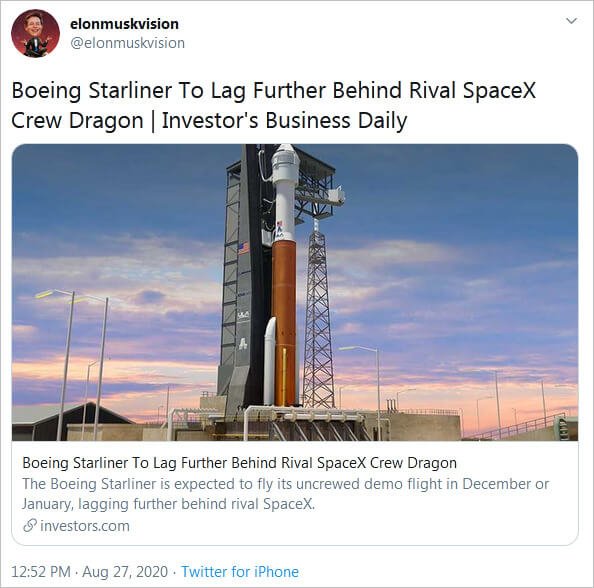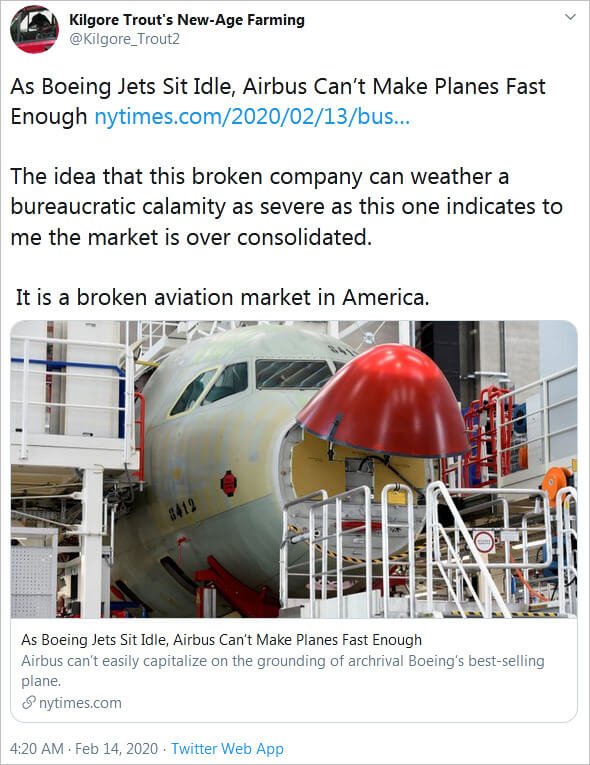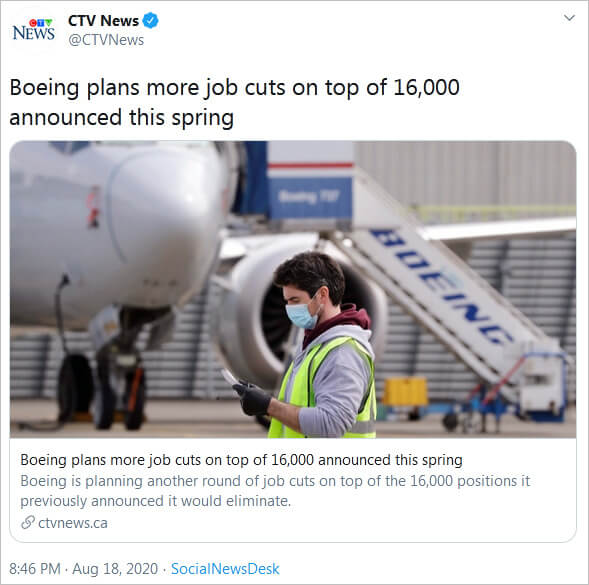- Raytheon Technologies is leaving the Dow Jones after just a couple of months on the index.
- Exxon Mobil and drug manufacturer Pfizer were booted from the index alongside Raytheon.
- Boeing’s leadership of the Dow has waned in recent months.
The S&P Dow Jones Indices company announced this week that airplane and defense contractor Raytheon Technologies Corp (NYSE:RTX) would exit the index alongside Exxon Mobil Corporation (NYSE:XOM), and Pfizer (NYSE:PFE). The decision came ahead of Apple’s (NASDAQ:AAPL) upcoming share split.
Raytheon Technologies only joined the Dow in April after the merger of United Technologies and Raytheon Company. While the company has its shortcomings, Boeing (NYSE:BA) deserves to be booted from the index the most.
Here is why.
1. Boeing Is a Business in Decline
Many companies have suffered amid the COVID-19 pandemic. For Boeing, its failings existed long before the year started. The pandemic has only exacerbated Boeing’s problems and accelerated revenue losses. In the future, it will get worse before it gets better.
Air travel is not expected to return to pre-pandemic levels until several years down the line. The decline in air travel means that plane orders are likely to continue being canceled or, at best, grow at a snail’s pace.
Year-to-date, Boeing has lost more orders than it has gained. As of July, the aerospace and defense giant had net negative orders of 836 planes.
Boeing’s defense division is a relatively more stable business, but if the Democrats win the White House, expect reduced defense spending. The global economic downturn could also result in governments reducing military spending.
Boeing’s space business is equally in bad shape. Boeing took a $410 million charge in the fourth quarter of 2019 after failing to dock the Starliner capsule at the International Space Station.
The charge is in recognition of the fact that Boeing may be forced to redo the test flight. The charge wiped out half of Boeing’s Defense, Space & Security division’s profits for the quarter.

2. Managerial Ineptitude
Boeing’s current woes are largely due to poor leadership, which has resulted in quality issues at the company.
The most prominent example of these quality issues is the 737 Max narrow-body jet, which is currently grounded.
Earlier this year, a Congressional report blamed the plane manufacturer’s woes on a culture of concealment, cost-cutting, and taking shortcuts.
The 737 was Boeing’s answer to Airbus’ A320 series of planes. Before the downturn in air travel, the A320 jet was sold out through 2025. Airbus’ good fortune contrasted sharply with Boeing’s fortunes as 737 Max orders were being canceled after two deadly crashes killed over 300 people.

Most recently, Boeing has discovered a manufacturing flaw with the fuselage of the 787 Dreamliner. The fuselage issue is further evidence that Boeing’s broken culture, allowed to thrive by inept leadership, has a long way to go before it is mended.
3. Aggressive Cost-Cutting Will Have a Long-Term Negative Impact on Boeing
Boeing is currently in survival mode. It has announced aggressive cost-cutting measures, including slashing research and development expenses, as well as laying off workers. The airplane manufacturer announced plans to lay off around 10% of its 160,000-strong workforce in spring, and more cuts are on the way.

In the six months through June, Boeing slashed its research and development expenses by 23%.
The cuts may help the aerospace and defense giant survive, but it destroys its competitiveness in the long run.
Disclaimer: This article represents the author’s opinion and should not be considered investment or trading advice from CCN.com. The author holds no investment position in the above-mentioned securities.




